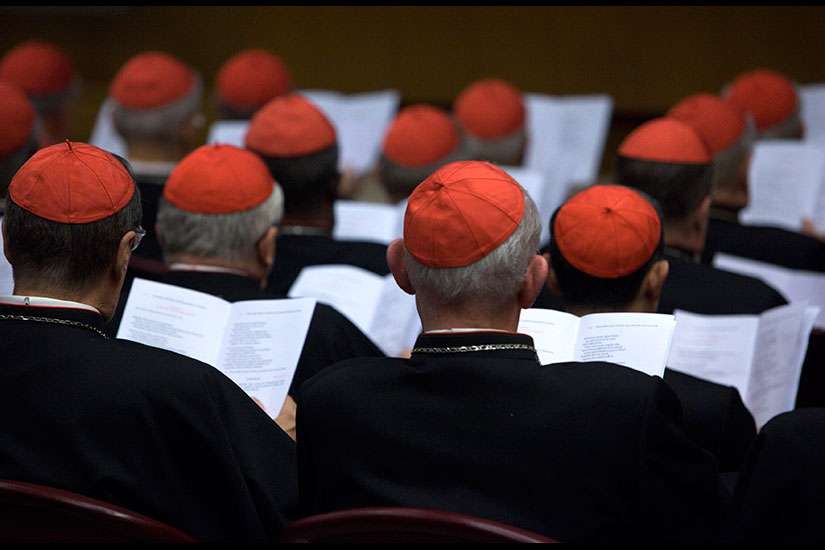A renewed understanding of the role of the people of God and their bishops "warrants considering not just the bishop of Rome (the pope) and the episcopate in the synodal process, but also the lay faithful," said a communique issued by the synod's secretary general, Cardinal Lorenzo Baldisseri.
The communique, released by the Vatican press office Feb. 17, provided a brief summary of the conclusions reached by a seminar held Feb. 6-9 at the Vatican. Sponsored by the synod's secretary-general, the gathering looked at the Synod of Bishops as being at the service of a "synodal church."
Participants, who included professors and experts in ecclesiology and canon law from all over the world, reflected on Pope Francis' call "to overcome self-referentiality in the ordained ministries in order to go back to seeing bishops as those" who each represent their local diocese and together represent the entire church, the statement said.
This rediscovery of the bishop's relationship to the local and universal church and the role of the lay faithful requires rethinking ways lay Catholics can play a bigger part in the entire synodal process -- in preparing for a synod, in the actual gathering and in implementing final decisions, it said.
Based on the past two synod gatherings on the family, which consulted with the lay faithful beforehand through questionnaires and other methods of input, this kind of consultation with "the people of God" must become a permanent feature in preparing for a synod, it said.
A number of participants at the seminar said they hoped there would be "greater listening to and involvement of the faithful who take part in a synodal assembly," specifically by taking greater advantage of the presence and input of lay experts and observers, it said.
"Even though they cannot vote, they can carry out a role that is important, in any case, in the discernment and decision-making process," it said.
The communique repeated Pope Francis' call for a more "listening church."
Listening involves more than just hearing, it said, in that the process recognizes "each one has something to learn -- the faithful, the episcopal college, the bishop of Rome. Each one listening to the other and everyone listening to the Holy Spirit, the spirit of the truth."


